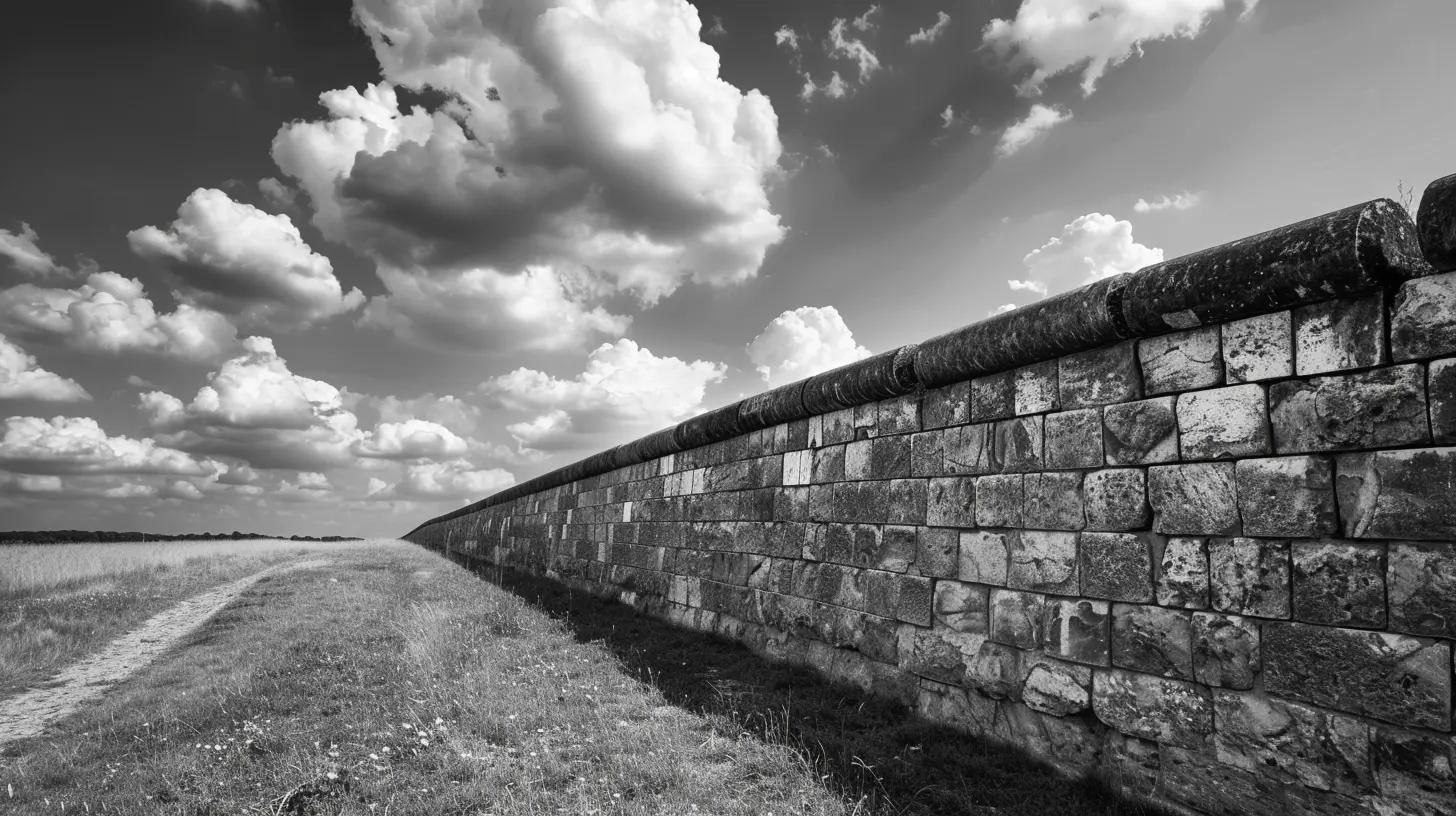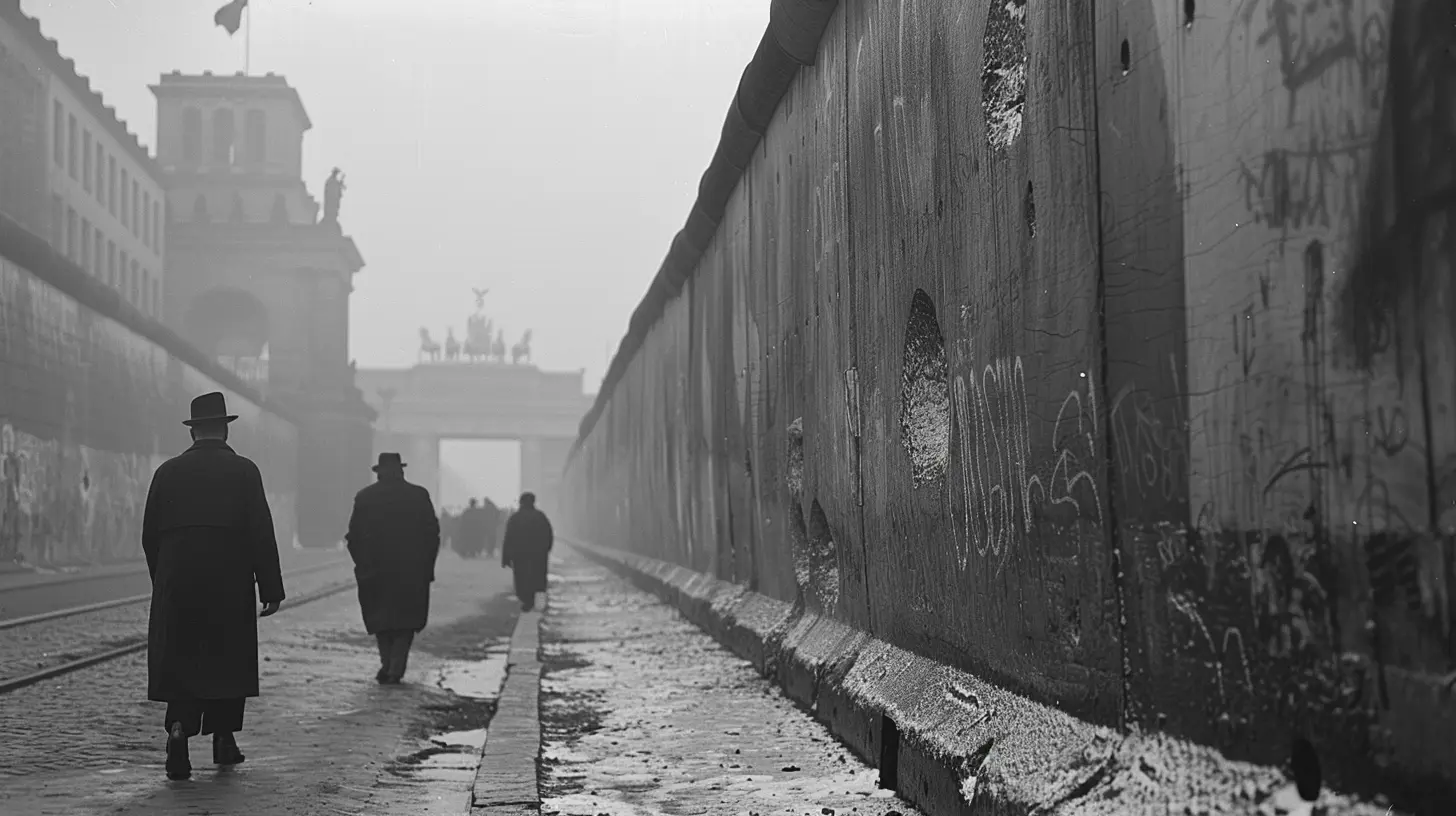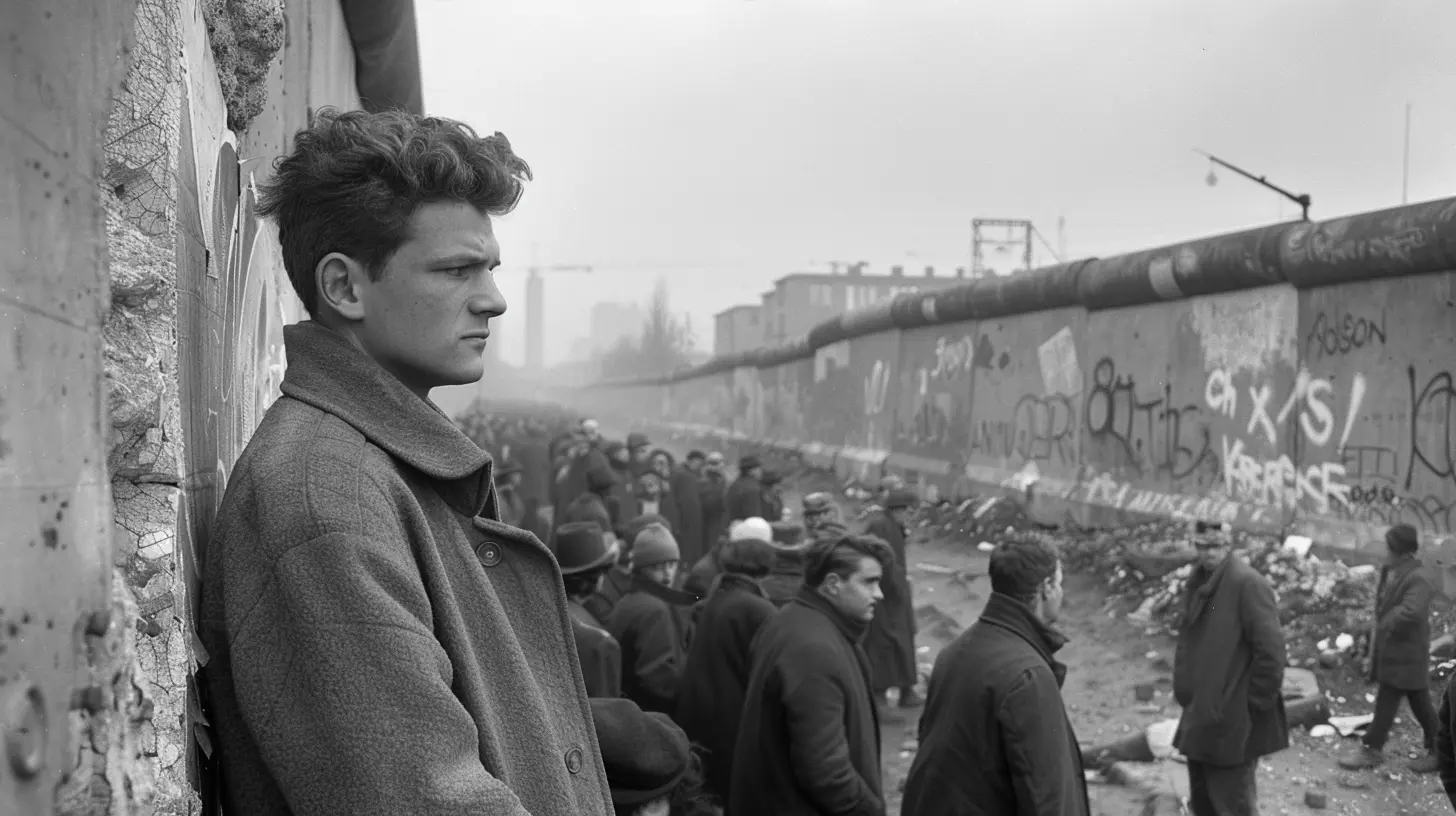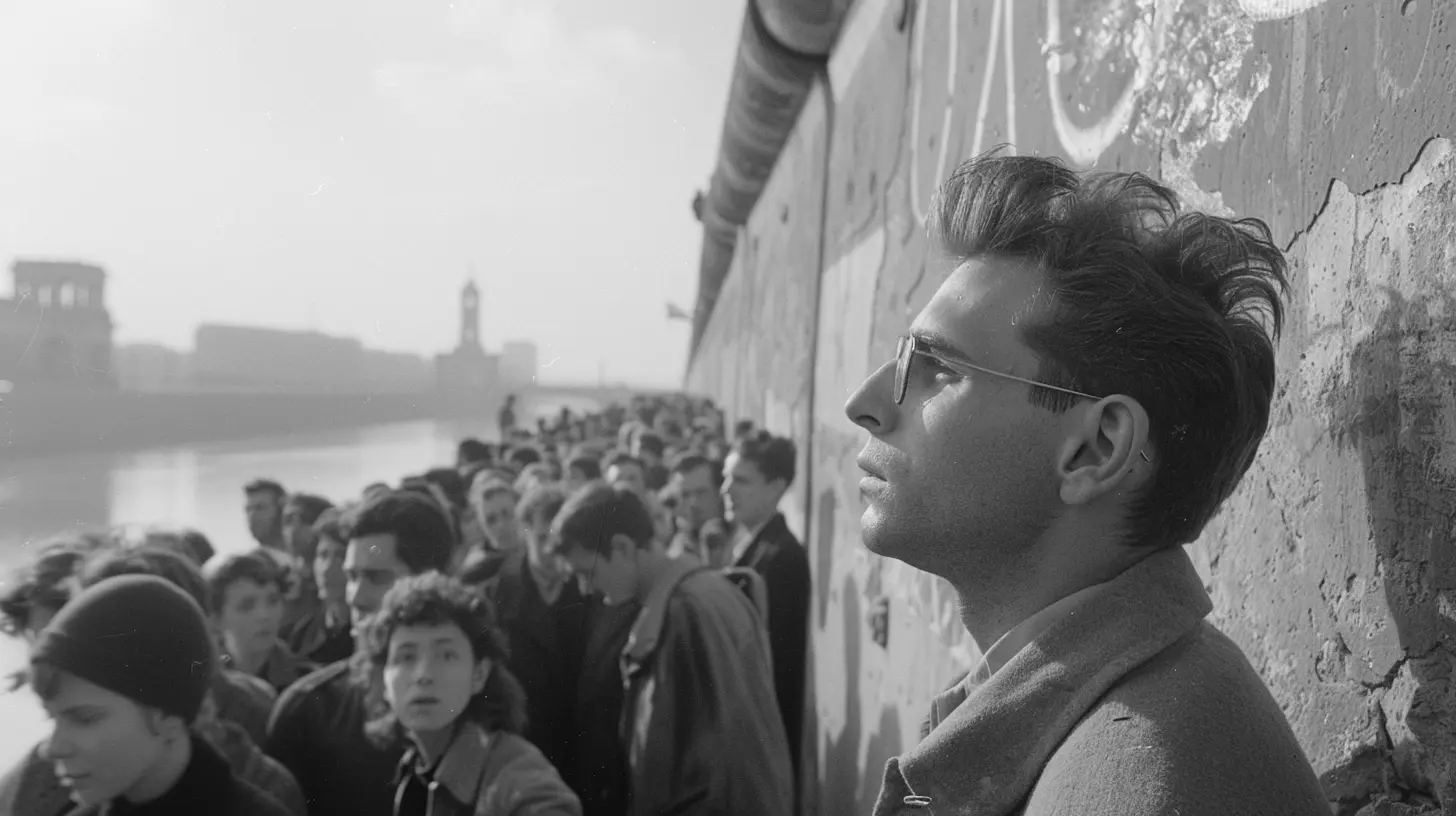The Importance of the Berlin Wall in Cold War History
18 January 2025
When you think about the Cold War, one of the first things that probably comes to mind is the Berlin Wall. It wasn’t just a physical barrier made of concrete and barbed wire. It was a symbol—a symbol of division, of the ideological battle between the East and the West. But what made this wall so significant in Cold War history? Why does it still hold such a powerful place in our collective memory? Let’s dive deep into the importance of the Berlin Wall and its role during this tense period.
A Divided World: Setting the Stage
To fully understand the importance of the Berlin Wall, we need to take a step back and look at the broader context of the Cold War. After World War II, the world was essentially split into two ideological camps: capitalism, led by the United States, and communism, led by the Soviet Union. It wasn’t just about different economic systems, though. It was about competing visions for how society should be organized, how people should live, and what freedoms they should enjoy.Germany, especially Berlin, became the frontline in this ideological showdown. After the war, Germany was divided into four zones, each controlled by the Allies: the U.S., the U.K., France, and the Soviet Union. Berlin, although located deep within the Soviet zone, was also divided into four sectors. This division would soon become the focal point of Cold War tensions.
The Birth of the Berlin Wall
By the late 1940s and early 1950s, it became clear that the division between East and West wasn’t going to heal anytime soon. West Germany, supported by Western powers, embraced a capitalist system and rapidly rebuilt its economy. East Germany (the German Democratic Republic or GDR), under Soviet influence, adopted communism. The difference in living standards between the two sides became increasingly stark.People in East Germany began fleeing to the West—by the millions. This mass migration was a huge embarrassment for the East German government and the Soviet Union. It was one thing to promote the virtues of communism, but it was another when your citizens were voting with their feet by leaving in droves. And where did many of these people escape through? Berlin.
In an effort to stop the exodus, the East German government, with Soviet backing, constructed a wall in August 1961. They didn’t just put up a simple fence, either. The Berlin Wall was a heavily fortified structure, complete with guard towers, barbed wire, and a “death strip”—a no-man’s land that made escaping to the West nearly impossible.
Symbolism Beyond Bricks and Mortar
The Berlin Wall wasn’t just a physical barrier; it was a metaphor for the Iron Curtain that divided the world during the Cold War. On one side of the wall, you had the freedoms of the West: democracy, free speech, a flourishing economy. On the other side, life was controlled by an authoritarian regime that limited personal freedoms and kept a tight grip on economic activity.It’s easy to think of the wall as a simple divider, but it was much more than that. It was a constant reminder of the ideological battle that was being waged between East and West. For those living in Berlin, the wall was a daily reality. Imagine waking up every day and seeing a massive, fortified structure cutting through your city, separating families and friends, and creating an ever-present tension.
The wall became the most visible symbol of the Cold War. While the United States and the Soviet Union never directly fought each other in battles, the Berlin Wall showed the world the very real consequences of their ideological conflict.
Life Behind the Wall: East Berlin vs. West Berlin
When people talk about the Berlin Wall, they often focus on the division between East and West, but what was life actually like on either side of the wall? Well, it’s a bit like comparing two different worlds.Life in East Berlin
East Berlin, controlled by the GDR, was subject to the strict rules of a communist system. The government controlled almost every aspect of life, from what jobs people could have to how much they earned. The economy was state-run, which meant there wasn’t much room for innovation or personal success. Housing was often government-provided, but it was basic, and there were shortages of consumer goods. Imagine wanting to buy a car, but having to wait years for it because the government decided when and how many cars would be produced.The Stasi, East Germany's secret police, kept a close eye on the population. People were encouraged to inform on their neighbors, colleagues, and even family members. The fear of being watched was constant, and dissent was not tolerated.
Life in West Berlin
West Berlin, on the other hand, was a bustling, vibrant city. It benefited from the economic support of the Marshall Plan and rapidly rebuilt after the destruction of World War II. The capitalist economy allowed for personal freedom, entrepreneurship, and consumer choice. If you wanted to buy a car, you could simply go to a dealership and pick one out. The political system was democratic, and people had the freedom to express their views without fear of persecution.The contrast between the two Berlins was stark, and it made the wall even more significant. It wasn’t just a barrier between two sides of a city—it was a barrier between two very different ways of life.
Attempts to Escape: The Human Cost
Despite the wall’s intimidating presence, people still tried to escape from East Berlin to the West. Some were successful, but many were not. The exact number of people who died trying to cross the wall is unknown, but estimates place it at around 140 to 200 individuals. These were people who were willing to risk their lives for a chance at freedom.People tried all kinds of methods to escape. Some dug tunnels under the wall, while others attempted to jump from buildings that were close to the border. There were even cases of people flying over the wall in hot air balloons! However, the wall’s guards were under strict orders to shoot anyone who attempted to cross, and many people lost their lives in the process.
The human stories behind the wall—the families torn apart, the people who risked everything for freedom—are what give the Berlin Wall its emotional weight. It's not just a historical event; it's a human tragedy.
The Fall of the Berlin Wall
By the late 1980s, the Cold War was beginning to thaw. The Soviet Union, under the leadership of Mikhail Gorbachev, introduced reforms like glasnost (openness) and perestroika (restructuring), which aimed to modernize the country and give people more freedom. These reforms sparked movements across Eastern Europe, and East Germany was no exception.On November 9, 1989, a government official accidentally announced that East Germans would be allowed to travel to the West. Crowds of people gathered at the wall, demanding to be let through. Overwhelmed by the sheer number of people, the border guards eventually opened the gates, and Berliners from both sides flooded the streets in celebration. People began chipping away at the wall with whatever tools they could find, and within days, the Berlin Wall was effectively dismantled.
The fall of the Berlin Wall marked the beginning of the end for the Cold War. It was a moment of triumph for freedom, democracy, and unity. The wall that had divided a city—and the world—was no more.
The Legacy of the Berlin Wall
Today, if you visit Berlin, you’ll find only fragments of the wall still standing. But its legacy is still very much alive. The Berlin Wall serves as a reminder of the dangers of division—both physical and ideological. It reminds us of the importance of freedom and the human cost of oppression.In many ways, the Berlin Wall has become a symbol of hope. It shows us that even the most entrenched divisions can be overcome. The wall may have stood for nearly three decades, but in the end, it couldn’t stand forever.
Conclusion: Why the Berlin Wall Still Matters
The Berlin Wall wasn’t just a barrier of concrete and wire. It was a symbol of the Cold War, representing the clash between two worldviews, the division of a city, and the struggle for freedom. The wall’s rise and fall encapsulate much of what the Cold War was about: fear, control, and ultimately, the triumph of human spirit.Even though the Berlin Wall fell over 30 years ago, its lessons are still relevant today. It reminds us of the importance of unity, the value of freedom, and the dangers of walls—both literal and metaphorical—that divide us.
all images in this post were generated using AI tools
Category:
History LessonsAuthor:

Zoe McKay
Discussion
rate this article
19 comments
Flora Harmon
Ah, the Berlin Wall: the ultimate 'do not cross' sign! Thanks for the history lesson; now I need a map!
February 13, 2025 at 4:45 AM

Zoe McKay
Glad you enjoyed it! The Berlin Wall truly symbolizes the divisions of the Cold War. A map can definitely help visualize its impact!
Arlo O'Brien
Wall? More like 'Nope!'!
January 29, 2025 at 3:47 AM

Zoe McKay
Indeed, the Berlin Wall symbolized division and resistance, highlighting the complexities of Cold War history.
Hope Gutierrez
Great article! The Berlin Wall truly symbolizes the struggle for freedom during the Cold War—such a pivotal moment in history!
January 25, 2025 at 9:15 PM

Zoe McKay
Thank you! I'm glad you found the article enlightening. The Berlin Wall indeed represents a significant chapter in the fight for freedom during the Cold War.
Diesel Graham
Thank you for this insightful piece! The Berlin Wall truly symbolizes the complexities of the Cold War, reminding us of the importance of unity and understanding.
January 24, 2025 at 1:57 PM

Zoe McKay
Thank you for your thoughtful comment! I'm glad you found the piece insightful. The Berlin Wall indeed serves as a powerful reminder of our shared history and the need for unity.
Catherine Summers
The Berlin Wall was more than concrete; it symbolized oppression versus freedom, shaping global ideology and countless lives. Its fall ignited a wave of liberation worldwide.
January 24, 2025 at 4:19 AM

Zoe McKay
Absolutely! The Berlin Wall served as a powerful symbol of the Cold War's ideological divide, and its fall was a pivotal moment that inspired movements for freedom globally.
Easton Sanchez
The Berlin Wall stands as a powerful symbol of resilience and hope. Its fall taught us the value of freedom and unity, reminding us that even the toughest barriers can be overcome. Let's continue to learn from history and build a brighter future!
January 23, 2025 at 7:40 PM

Zoe McKay
Thank you for your insightful comment! The Berlin Wall indeed symbolizes resilience and the enduring human spirit, highlighting the importance of unity and freedom in our shared history.
Peter Moore
The Berlin Wall wasn't just concrete; it symbolized the chilling divide of ideologies, making every crack a testament to freedom’s enduring struggle.
January 23, 2025 at 1:25 PM

Zoe McKay
Absolutely, the Berlin Wall was a powerful symbol of the ideological battle during the Cold War, representing the stark divide between freedom and oppression. Its legacy continues to remind us of the ongoing struggle for human rights.
Sonya Sweeney
The Berlin Wall symbolized the ideological divide of the Cold War, representing not only the physical separation of East and West but also the broader struggle between democracy and communism.
January 23, 2025 at 4:14 AM

Zoe McKay
Absolutely, the Berlin Wall was a powerful emblem of the Cold War, highlighting the stark contrast between democratic ideals and communist oppression. Its fall marked a significant turning point in history, symbolizing the triumph of freedom over division.
Knox Edwards
The Berlin Wall epitomized the ideological divide of the Cold War, symbolizing not just physical separation but also the broader conflicts between communism and democracy. Its fall marked a pivotal moment, reshaping global politics and heralding a new era of unity and freedom.
January 22, 2025 at 7:48 PM

Zoe McKay
Thank you for your insightful comment! The Berlin Wall indeed stands as a powerful symbol of the Cold War's ideological struggle and its fall was crucial in transforming global politics towards unity and freedom.
Ford Henderson
Behind the cold concrete of the Berlin Wall lies a tale of divided ideologies and whispered secrets. What stories linger in its shadow, waiting to be unearthed and shared? Only time will tell.
January 22, 2025 at 5:01 AM

Zoe McKay
The Berlin Wall stands as a powerful symbol of the Cold War, encapsulating the struggle between freedom and oppression. Its stories remind us of the enduring human spirit and the complexities of divided ideologies, urging us to reflect on the lessons of the past.
Dean Warner
Great insights on a pivotal moment!
January 21, 2025 at 8:29 PM

Zoe McKay
Thank you! I'm glad you found it insightful. The Berlin Wall truly was a crucial symbol during the Cold War.
Thea McNeil
Great article! The Berlin Wall serves as a powerful symbol of division and unity, highlighting the resilience of the human spirit during the Cold War.
January 21, 2025 at 1:28 PM

Zoe McKay
Thank you! I appreciate your insights on the Berlin Wall's significance in representing both division and resilience during such a pivotal time in history.
Oriel Mercado
Ah, the Berlin Wall—where ‘Fenced In’ took on a whole new meaning! It’s like the ultimate ‘Do Not Enter’ sign, but for countries. Who knew history could be so… divided? Let’s raise a glass to walls and their epic fall!
January 21, 2025 at 3:19 AM

Zoe McKay
Absolutely! The Berlin Wall symbolizes the stark divisions of the Cold War, both physically and ideologically. Its fall marked a pivotal moment in history, celebrating unity and the triumph of freedom. Cheers to that!
Opal McAndrews
Ah yes, the Berlin Wall—because nothing says "let's keep the peace" quite like a giant concrete barrier. Truly, a masterclass in relationship goals!
January 20, 2025 at 8:46 PM

Zoe McKay
While the Berlin Wall symbolized division, it also highlighted the global struggle for peace and reunification amidst Cold War tensions.
Fay McQuade
Berlin Wall: History's sassy boundary of division!
January 20, 2025 at 12:54 PM

Zoe McKay
Thanks for your comment! The Berlin Wall truly symbolizes the stark division of ideologies during the Cold War, making it a pivotal historical landmark.
Layla Davis
Berlin Wall: proof that even walls can’t keep friends from arguing!
January 20, 2025 at 4:16 AM

Zoe McKay
Thank you for your comment! The Berlin Wall indeed symbolizes the complexities of friendships and ideologies during the Cold War. It highlights how barriers can’t fully suppress differing opinions.
Vanta McDougal
Hidden truths linger within the Berlin Wall’s shadows, where divided lives forged a complex tapestry of history.
January 18, 2025 at 9:40 PM

Zoe McKay
Thank you for your insightful comment! The Berlin Wall indeed symbolizes the profound human experiences and historical complexities of the Cold War era.
Clementine Robinson
Great article! The Berlin Wall reminds us how history shapes our world. Understanding its impact is essential for fostering unity and promoting peace. Let's keep learning and building bridges!
January 18, 2025 at 12:22 PM

Zoe McKay
Thank you for your thoughtful comment! I'm glad you found the article insightful. History truly plays a crucial role in shaping our future.
Freya Romero
Thank you for shedding light on the significance of the Berlin Wall. It stands as a poignant reminder of the struggles endured during the Cold War. Understanding its impact helps us appreciate the resilience of those affected and the importance of unity in overcoming division. Great insights!
January 18, 2025 at 4:36 AM

Zoe McKay
Thank you for your thoughtful comment! I'm glad you found the insights on the Berlin Wall's significance meaningful. It truly represents the resilience and unity that emerged from such a tumultuous period.
MORE POSTS

How to Identify Twice-Exceptional Students in Gifted Education

Technology Tools to Enhance Learning for Gifted Students

How Virtual Classrooms Support Lifelong Learning

The Intersection of Emotional and Academic Engagement in Schools

The Role of Storytelling in Creating Memorable Presentations

The Role of Technology in Enhancing Peer Tutoring Programs

Strategies for Improving Focus in an Online Environment

Culturally Responsive Teaching: What Every Educator Should Know

Promoting Body Positivity in the Classroom

Creating a Teacher Portfolio: Showcasing Your Skills and Achievements

Designing Flipped Classroom Strategies for Maximum Engagement

Understanding the Dynamics of Persuasion in Communication